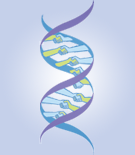User:Orsolya Kiraly: Difference between revisions
No edit summary |
No edit summary |
||
| Line 12: | Line 12: | ||
*[[Special:Emailuser/Orsolya Kiraly|Email me through OpenWetWare]] | *[[Special:Emailuser/Orsolya Kiraly|Email me through OpenWetWare]] | ||
==Education== | |||
<!--Include info about your educational background--> | |||
* 2008, Ph.D., Pathobiochemistry [http://english.sote.hu/ Semmelweis University], [http://en.wikipedia.org/wiki/Budapest Budapest], Hungary | |||
* 2002, B.S., Molecular Biology [http://www.elte.hu/en Eötvös Loránd University], [Budapest], Hungary | |||
==Research interests== | |||
I received my PhD for work on how rare mutations in pancreatic trypsin inhibitor contribute to chronic pancreatic inflammation. In the [http://web.mit.edu/engelward-lab/ Engelward lab], my current work is aimed at homologous recombination in the pancreas in vivo. | I received my PhD for work on how rare mutations in pancreatic trypsin inhibitor contribute to chronic pancreatic inflammation. In the [http://web.mit.edu/engelward-lab/ Engelward lab], my current work is aimed at homologous recombination in the pancreas in vivo. | ||
| Line 19: | Line 30: | ||
== | ==Past projects== | ||
In the lab of [http://dentalschool.bu.edu/research/molecular/sahin-toth.htm Miklos Sahin-Toth] at Boston University, I was investigating the functional effects of mutations in SPINK1, the pancreatic secretory trypsin inhibitor. This inhibitor is an important line of defense against trypsin activity in the pancreas. It is important to inhibit any trypsin activity in the pancreas because trypsin activity can result in the activation of other digestive enzymes in a cascade reaction, which can lead to cell damage and pancreatic inflammation. | |||
We found that signal peptide mutations [http://www.ncbi.nlm.nih.gov/pubmed/17274009 abolish the secretion of SPINK1] into pancreatic juice, and coding region mutations cause misfolding of the protein which is [http://www.ncbi.nlm.nih.gov/pubmed/17525091 degraded intracellularly and is not secreted]. In patients with these mutations, spontaneously activated trypsin is thus not inhibited by SPINK1, eventually resulting in autodigestion and inflammation. | |||
==Publications== | ==Publications== | ||
Revision as of 08:13, 1 September 2010
Contact Info

- Orsolya Kiraly
- Postdoctoral Associate
- Engelward laboratory
- Department of Biological Engineering
- Massachusetts Institute of Technology
- 77 Massachusetts Ave
- Lab: 617-750-7335 (Room 16-760)
- Cambridge, MA
- Email me through OpenWetWare
Education
- 2008, Ph.D., Pathobiochemistry Semmelweis University, Budapest, Hungary
- 2002, B.S., Molecular Biology Eötvös Loránd University, [Budapest], Hungary
Research interests
I received my PhD for work on how rare mutations in pancreatic trypsin inhibitor contribute to chronic pancreatic inflammation. In the Engelward lab, my current work is aimed at homologous recombination in the pancreas in vivo.
While mitotic homologous recombination is an important DNA repair/tolerance mechanism, it can result in sequence rearrangements that can contribute to cancer. I am investigating the effects of DNA damaging chemicals, radiation, cell proliferation and DNA repair on homologous recombination in the pancreas.
The next question in my project is whether homologous recombination is induced by inflammation, which is a major risk factor for cancer.
Past projects
In the lab of Miklos Sahin-Toth at Boston University, I was investigating the functional effects of mutations in SPINK1, the pancreatic secretory trypsin inhibitor. This inhibitor is an important line of defense against trypsin activity in the pancreas. It is important to inhibit any trypsin activity in the pancreas because trypsin activity can result in the activation of other digestive enzymes in a cascade reaction, which can lead to cell damage and pancreatic inflammation. We found that signal peptide mutations abolish the secretion of SPINK1 into pancreatic juice, and coding region mutations cause misfolding of the protein which is degraded intracellularly and is not secreted. In patients with these mutations, spontaneously activated trypsin is thus not inhibited by SPINK1, eventually resulting in autodigestion and inflammation.
Publications
- Goldbeter A and Koshland DE Jr. An amplified sensitivity arising from covalent modification in biological systems. Proc Natl Acad Sci U S A. 1981 Nov;78(11):6840-4. DOI:10.1073/pnas.78.11.6840 |
- JACOB F and MONOD J. Genetic regulatory mechanisms in the synthesis of proteins. J Mol Biol. 1961 Jun;3:318-56. DOI:10.1016/s0022-2836(61)80072-7 |
leave a comment about a paper here
- ISBN:0879697164